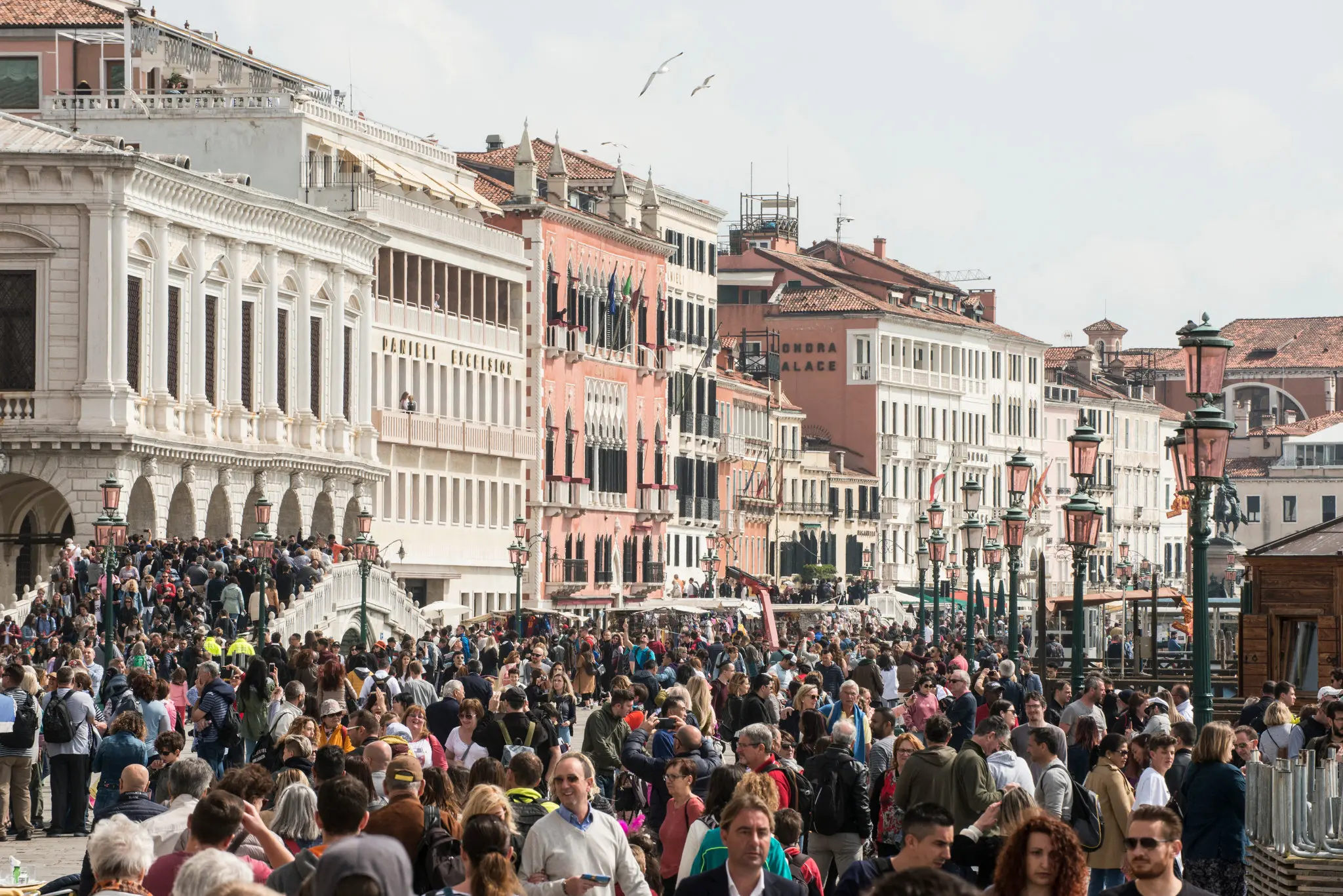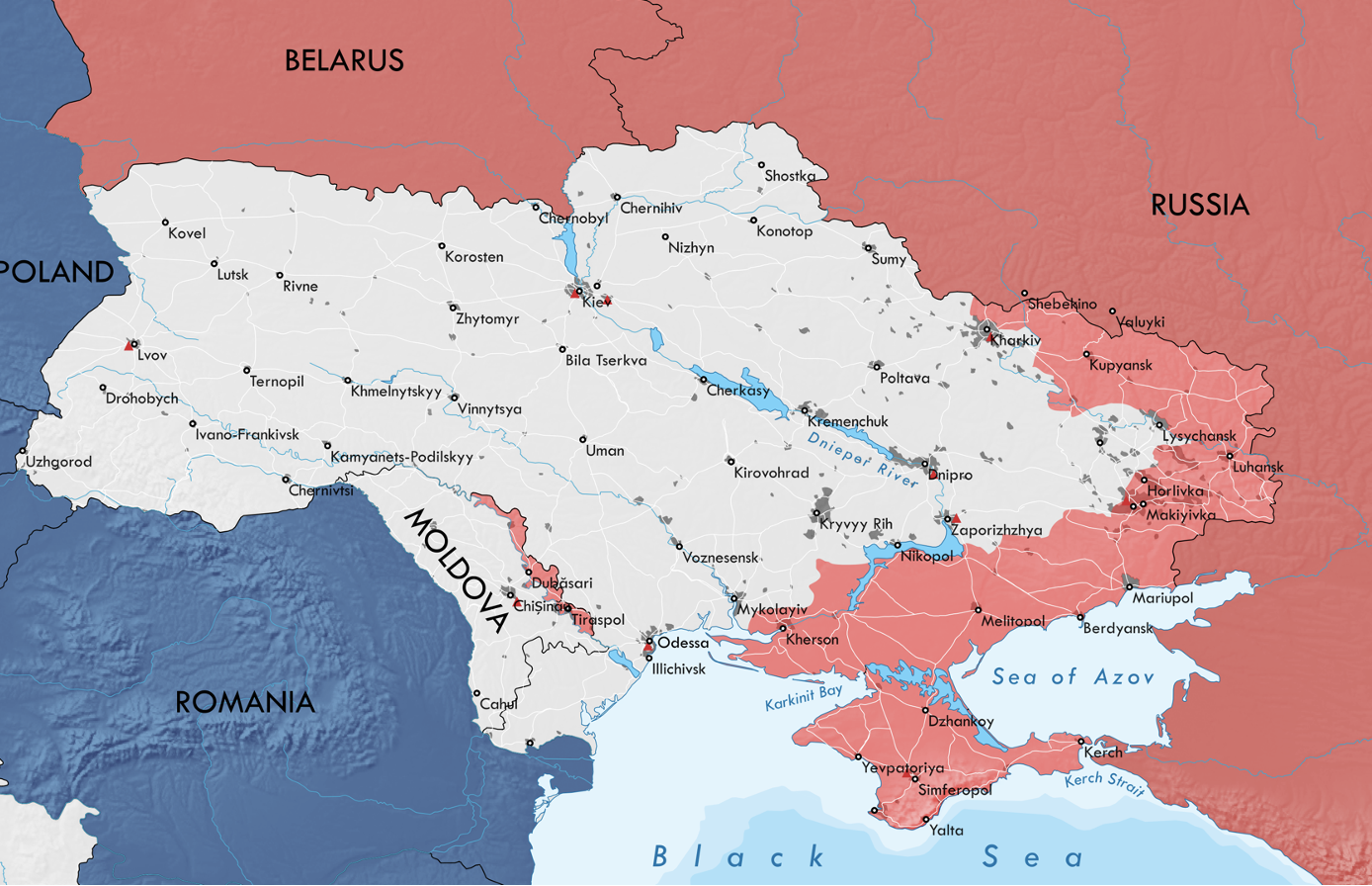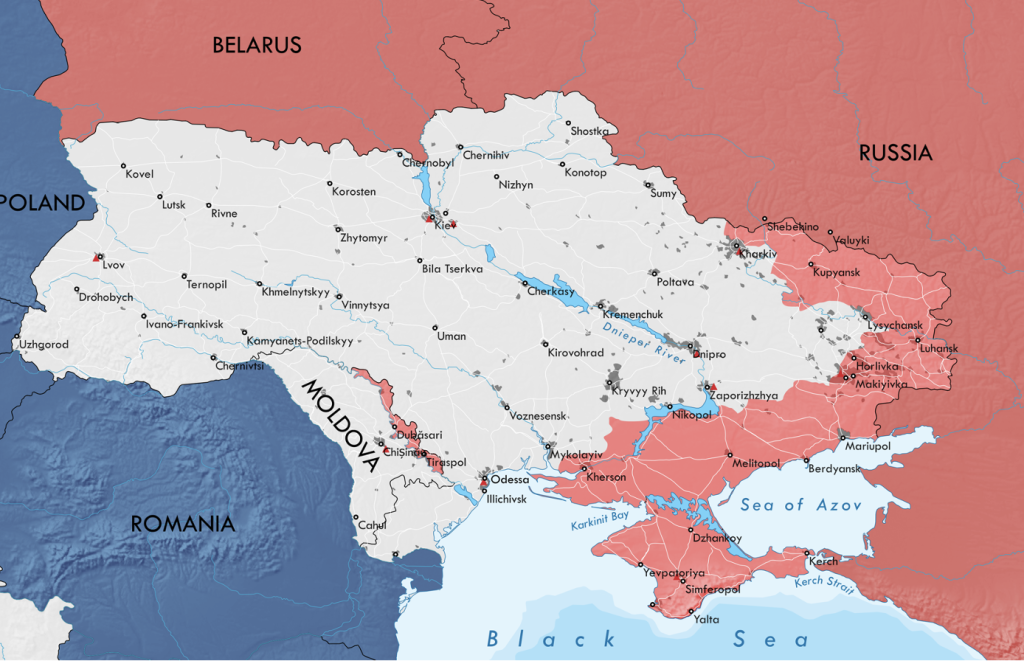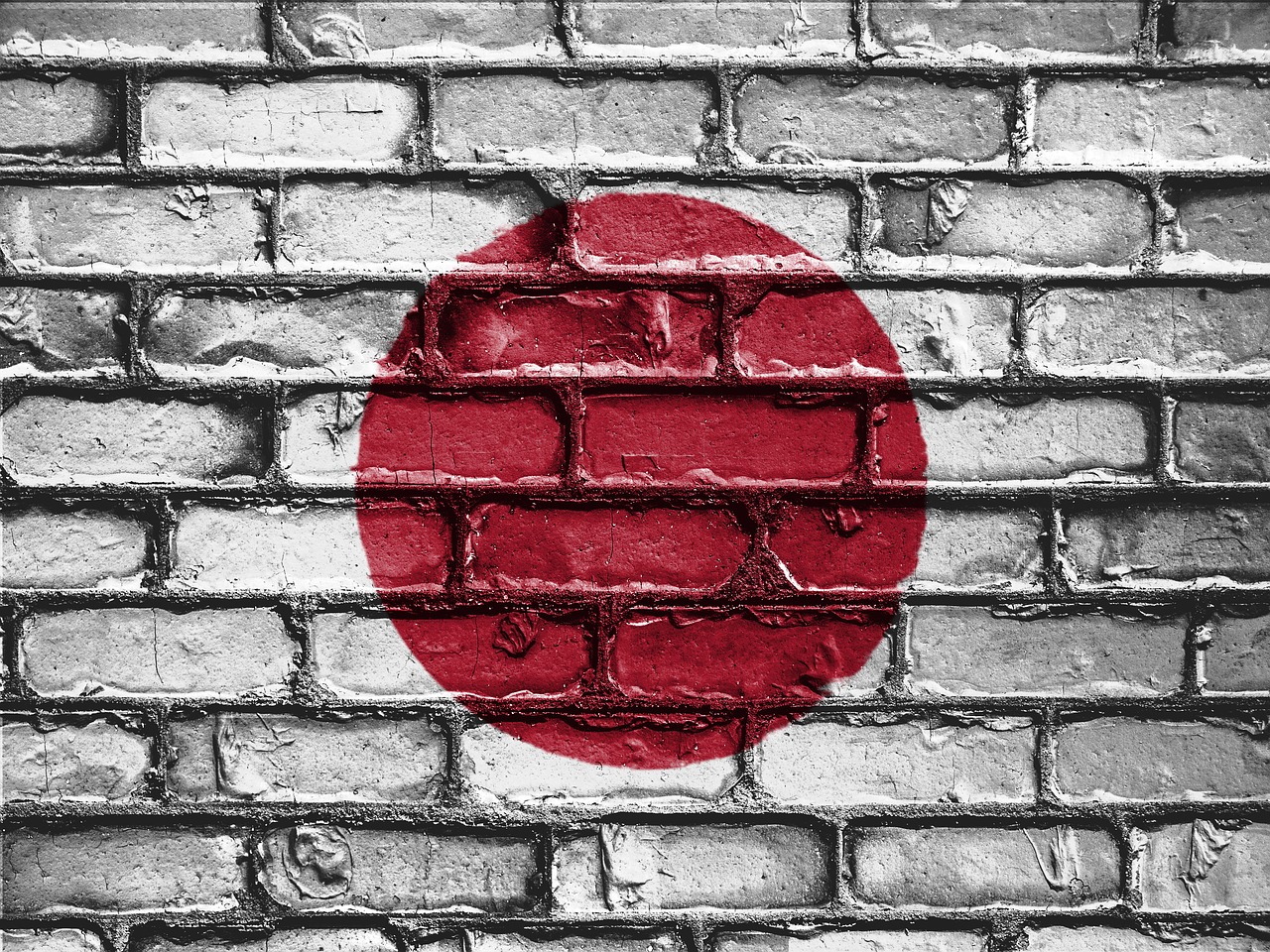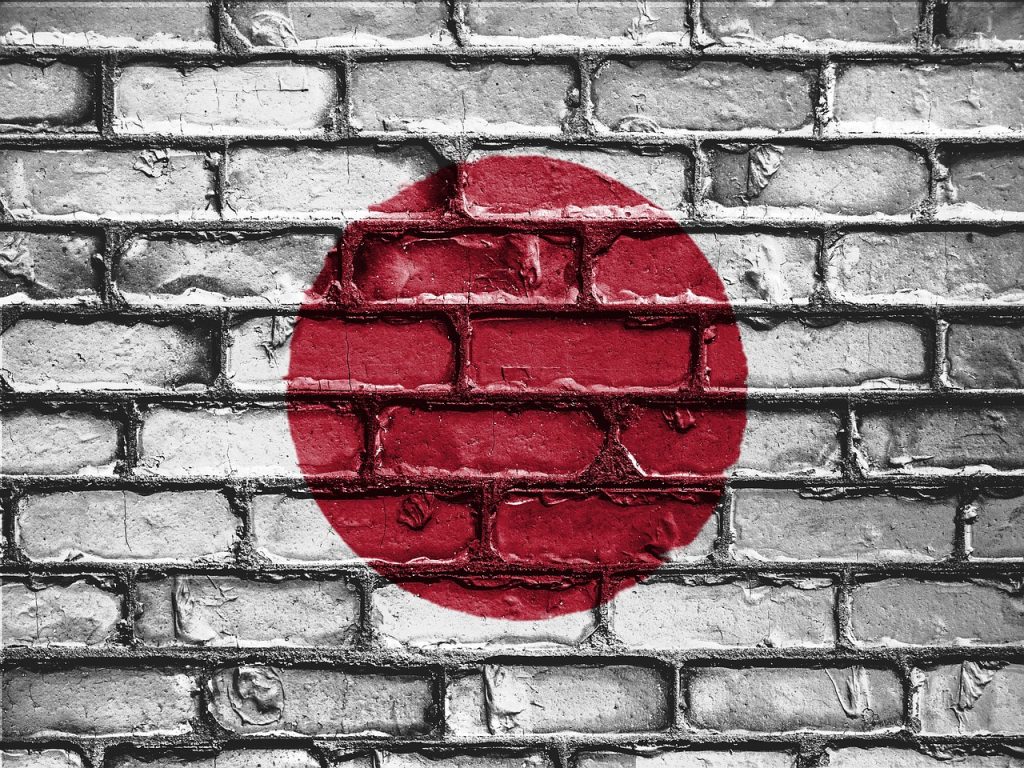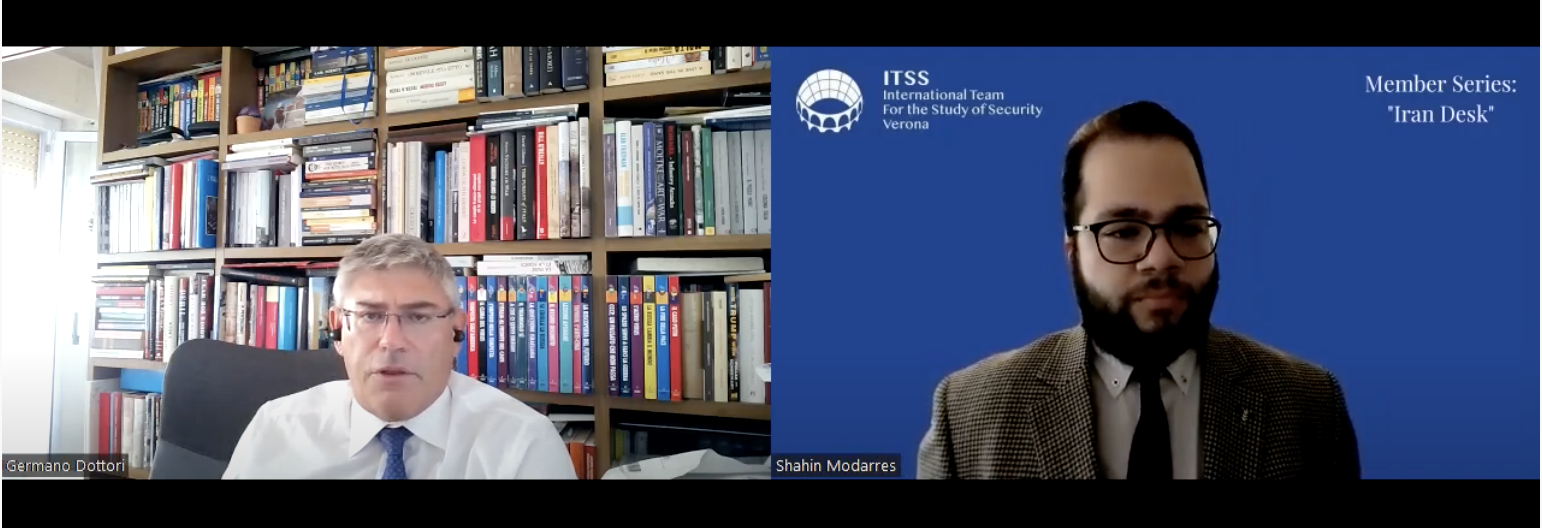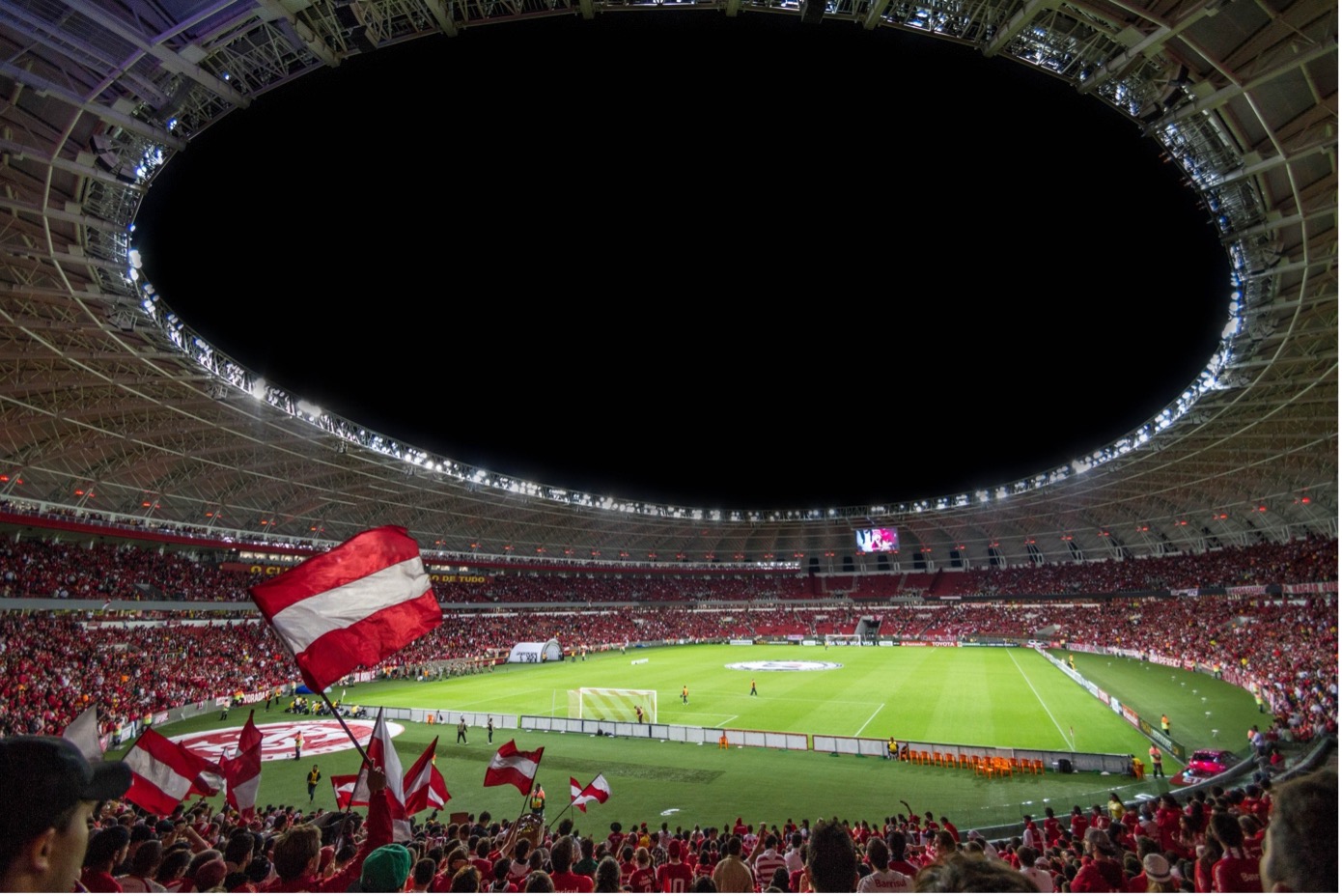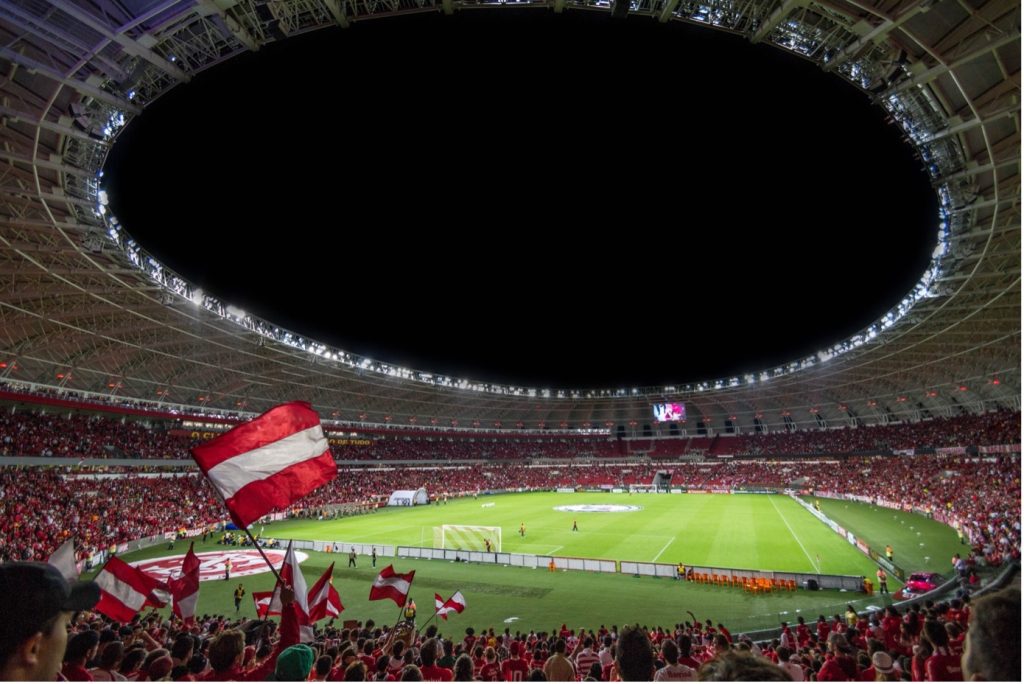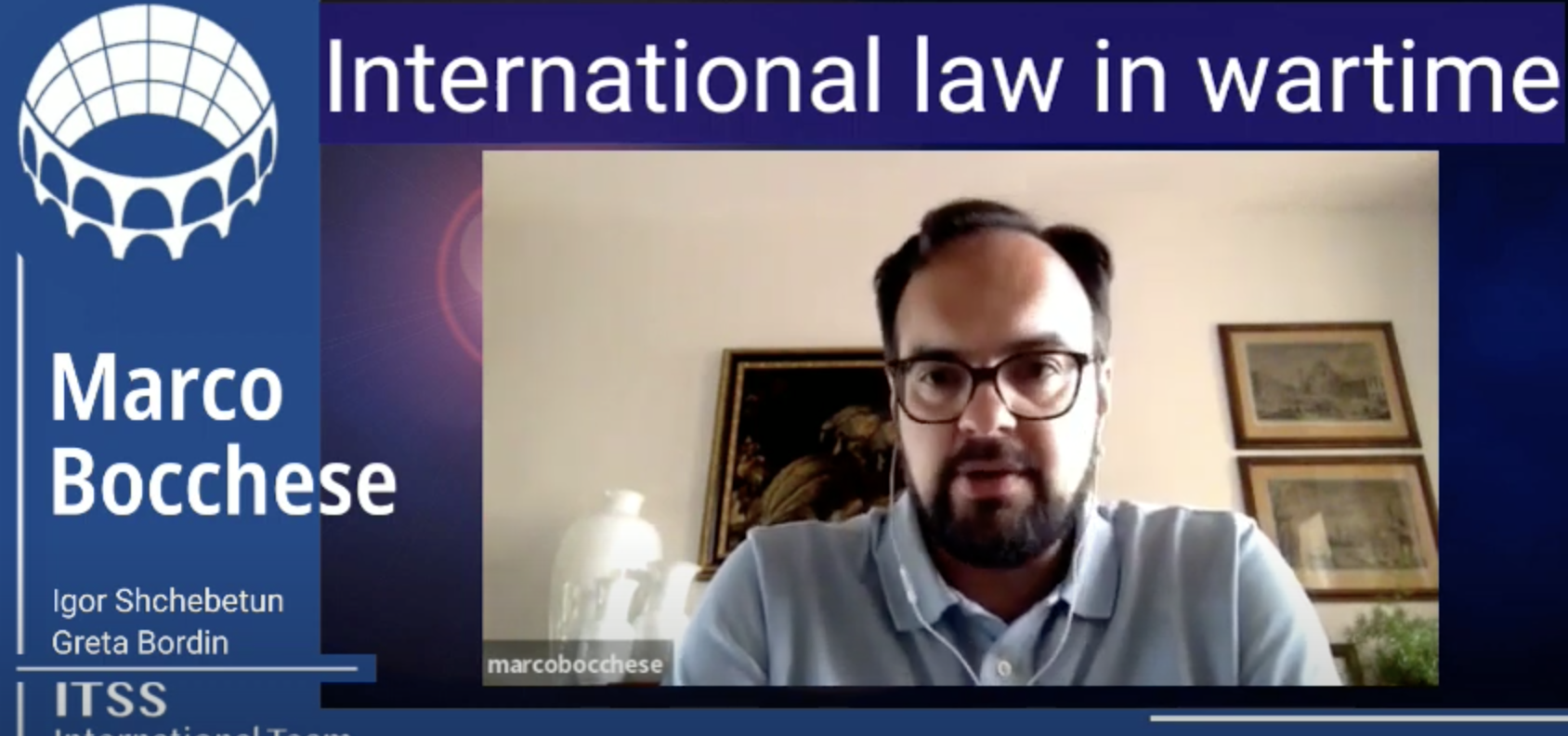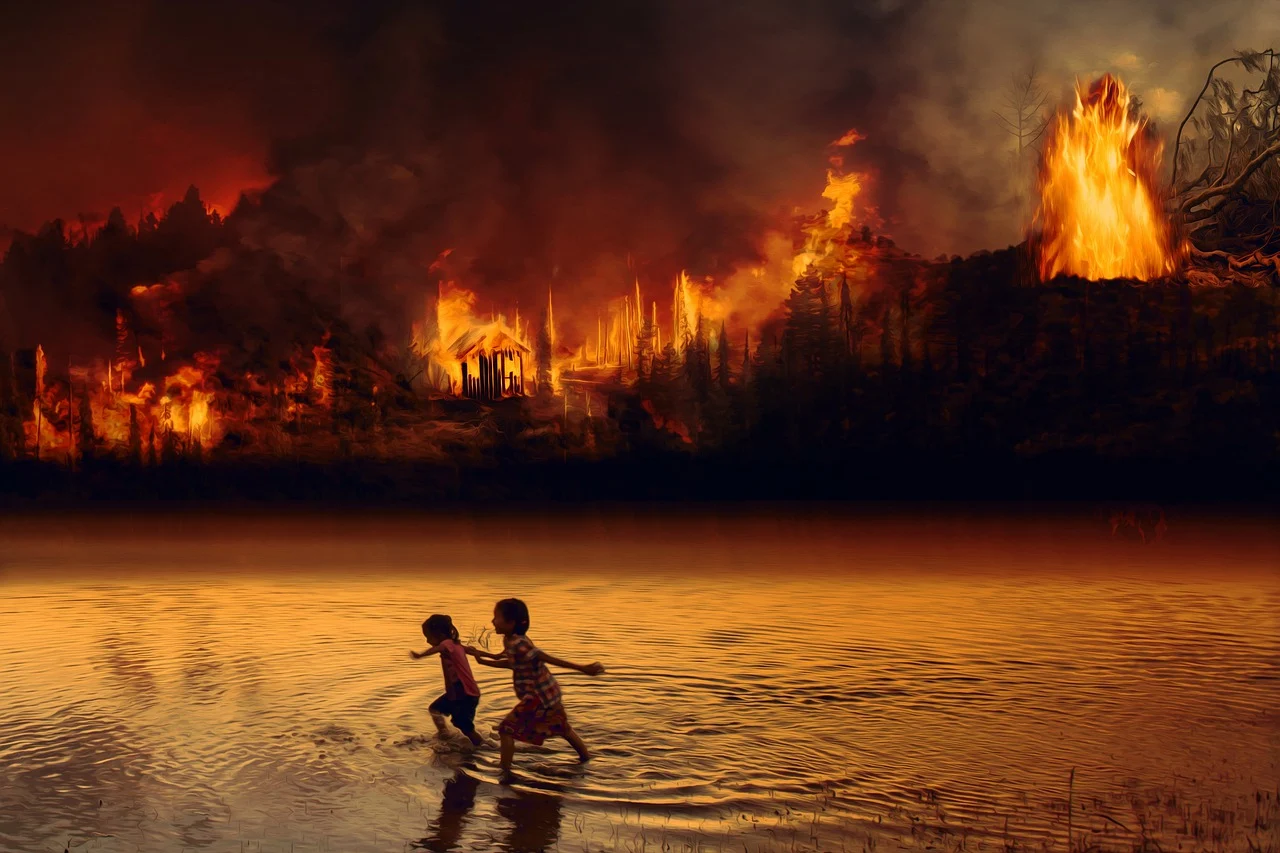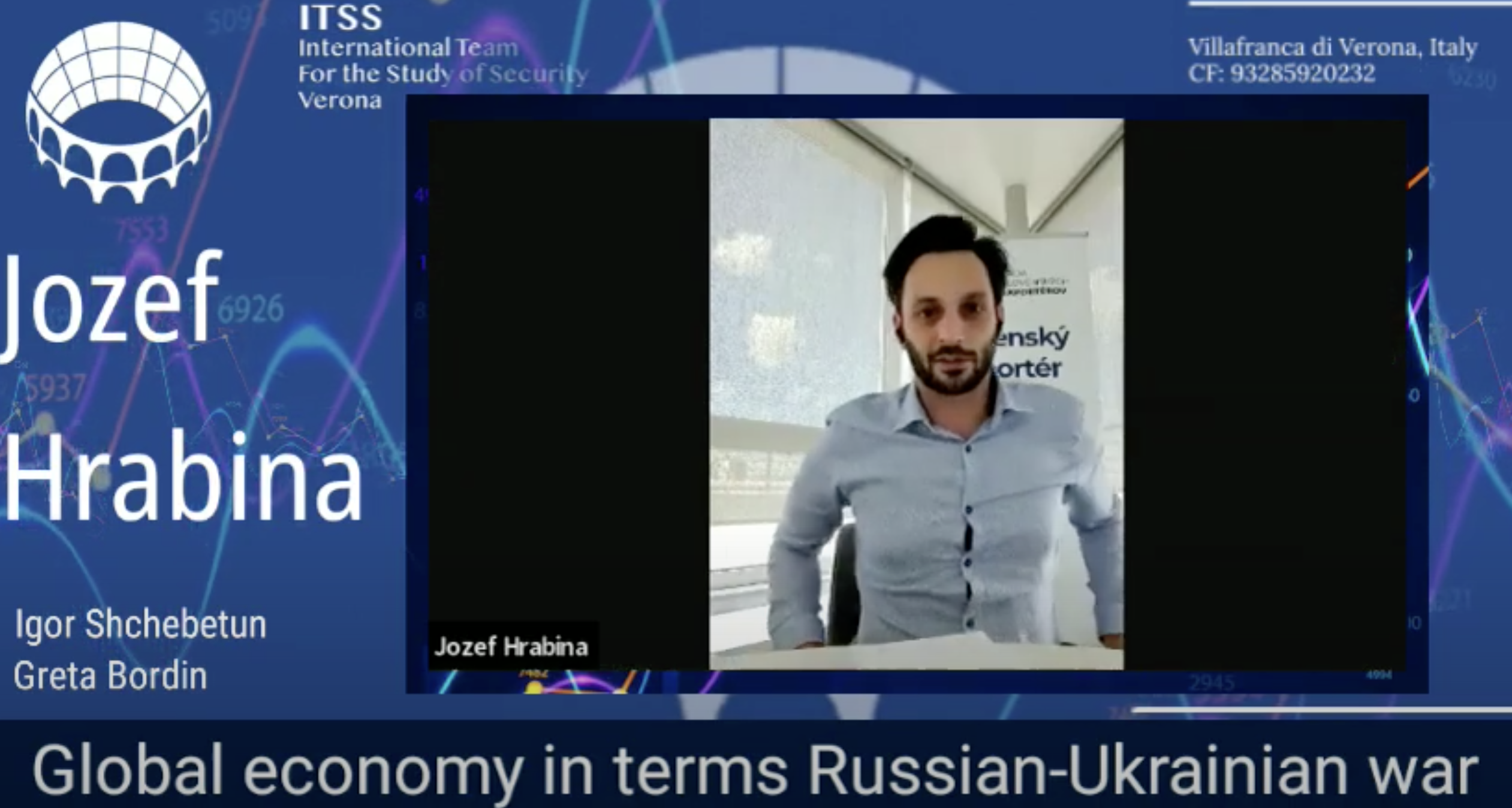Author: Sarah Toubman.
Venice recently announced that from January 2023 it will charge a fee of between €3 to €10 to tourists who visit the city for a day only, a long-awaited measure by locals who feel the negative effects of overtourism on a day-to-day basis. Overtourism poses both a nuisance and a hazard to those living in the city. Tourists leave garbage by the canals, posing an environmental and health risk. Large tour groups also swarm the city’s small streets, making it difficult for everyday people, especially the elderly, to easily reach their destinations. Oversized cruise ships also previously damaged the Venetian Lagoon’s natural ecosystem and the city’s historic built environment, such as medieval walls and docks, until a change in regulation last year banning these boats from the port.
Venice also has problems with Airbnb, like many global tourism hubs. Many properties are owned by wealthy landlords who live outside the city and rent their homes to those passing through for a short period of time, failing to contribute to the city’s economic or cultural life. This also creates a housing security issue, as those who live or seek to move to Venice are limited in choice and price. “If we don’t fix these problems, Venice will be like Disneyland – just a park for the tourists without people living there,” Venetian activist Matteo Sechi commented in 2010. In fact, as of 2016, less than 55,000 people live in the city of Venice, while over 60,000 tourists can visit per day in the high season.
The new tax on day-trippers aims to address this by setting a tourist “threshold of 40,000 or 50,000 visitors a day,” according to Simone Venturini, Venice’s tourism councilor. Those who stay in Venice overnight will not have to pay the fee, as, since 2011, they have been subject to a nightly city charge on hotel or Airbnb bills. There is also a robust list of exceptions to the tax on day trippers. The list includes: residents of Venice, residents of the Veneto region, relatives up to the 3rd degree to anyone living in Venice, those who work or study in Venice, anyone who was born in or owns property in Venice, those visiting Venice for official business or a sports competition, and more.
One issue that has not yet been comprehensively analyzed by many considering limiting tourism to Venice is the way these restrictions will interact with EU mobility law. Under EU law, the freedom of EU citizens to move, reside, and work across the EU is guaranteed. In fact, it is guaranteed that as tourists, “EU citizens may enter and stay in the territory of another Member States for up to three months without being subject to any conditions or formalities other than the requirement to hold a valid identity card or passport.” Technically speaking, Venice’s charge for tourists may evade categorization as a “condition or formality” to enter the territory of an EU member state, as it does not actually prevent visitors from entering, but requires they pay a tax upon arrival. Furthermore, it concretely addresses the very real issues related to overtourism Venetians face.
However, addressing these issues in this manner means the city of Venice essentially draws legislative lines between who is a “good” or a “bad” tourist, and who is or isn’t a “real” Venetian, and therefore exempt. For example, even if an EU citizen grew up in Venice, but was born elsewhere and no longer had family in the city, they may still have to pay the new fee if they visit for a day only. On the surface, this may seem like an inappropriate application of the regulation, but on the other hand, it would likely take the local Venetian government a huge amount of resources and funding to accurately sift through this level of nuance. For the moment, the tax on daytrippers to Venice, the vast majority of whom arrive via large cruise ships, seems to be a suitable measure to discourage overtourism in the city. However, were the range of tourists subject to tax to be expanded this would certainly raise a number of legal, moral, and security-related issues.
Venice is not the only city in Italy or Europe struggling with problems related to overtourism and housing security, however it is one of the few struggling with both these issues and a rapidly depleting population. Florence has also called for restrictions related to Airbnb, while Barcelona plans to introduce a pollution tax for cruise passengers, and Amsterdam taxes cruise guests. But while Barcelona has a population of 1.6 million, Amsterdam has 907,976 inhabitants, and Florence has 383,083 residents, Venice has less than 55,000. Nevertheless, Venice is not alone in these concerns, with Dubrovnik, Croatia, recently raising its tax on overnight tourist stays in light of its issues with overtourism, housing security, and population depletion. Therefore, there must be a systemic approach to addressing overtourism and housing security while maintaining the freedom of mobility in Europe.
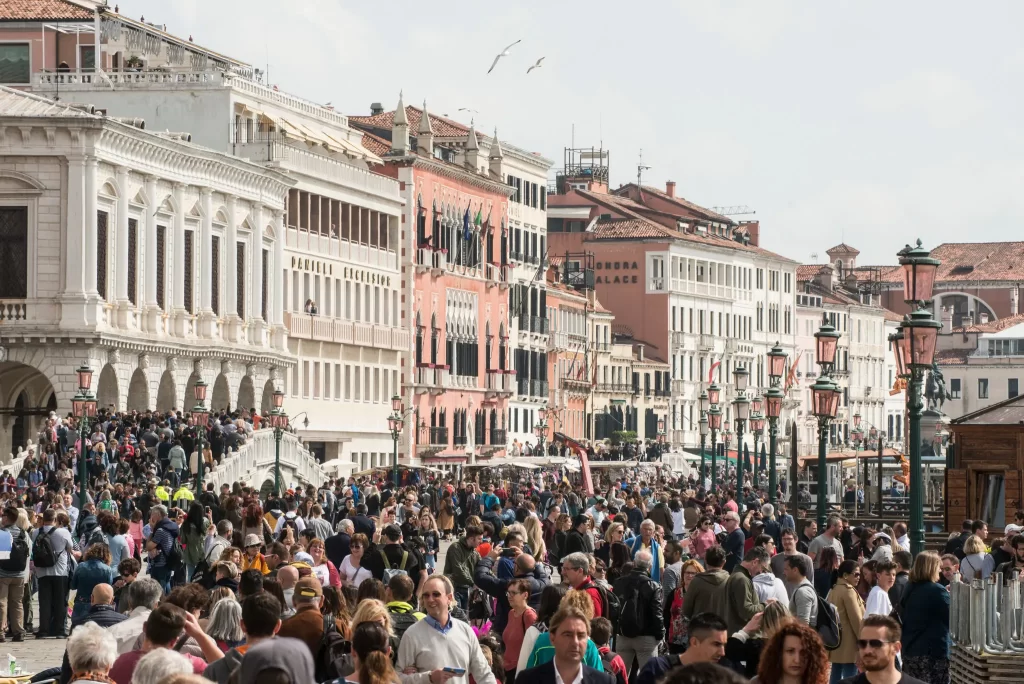
Italian Translation:
La città di Venezia ha recentemente annunciato che i turisti giornalieri dovranno pagare una tassa di entrata tra i €3 to €10. Il provvedimento era a tempo atteso dai cittadini, i quali subivano gli effetti negativi dell’overtourism, ovvero il sovraffollamento turistico giornaliero. L’overtourism porta fastidio ma anche opportunità ai cittadini di Venezia. I turisti lasciano immondizia a ridosso dei canali, generando rischi sanitari e ambientali. I grandi gruppi turistici affollano i piccoli vicoli della città, rendendo difficili gli spostamenti per gli abitanti, particolarmente per gli anziani. Enormi navi da crociera hanno precedentemente danneggiato l’ecosistema della Laguna e l’ambiente storico della città, come i muri e porti storici, fino all’anno scorso in seguito al provvedimento che vietò l’arrivo di queste navi nei porti.
Venezia ha anche problemi con Airbnb, come molti luoghi turistici. Molte proprietà appartengono a proprietari provenienti da famiglie benestanti che vivono fuori dalla città ed affittano le loro case a coloro che passano per la città per un breve periodo, fallendo nella possibilità di contribuire alla vita economica e culturale della città. Inoltre, questo crea un problema di sicurezza abitativa, in quanto coloro che vivono o cercano di trasferirsi a Venezia hanno una scelta limitata e prezzi esorbitanti. “Se non risolviamo questi problemi, Venezia sarà come Disneyland - come un parco di turisti senza abitanti,” un attivista Veneziano, Matteo Sechi, commenta nel 2010. Infatti, nel 2016, Venezia registra meno di 55.000 abitanti, mentre in alta stagione in numero di turisti giornalieri supera i 60.000.
La nuova tassa sui turisti giornalieri ha l’obiettivo di stabilire “una soglia tra 40.000 e 50.000 visitatori al giorno”, dice Simone Venturini, assessore al turismo di Venezia. Coloro che passano una notte a Venezia non dovranno pagare la tassa, in quanto, dal 2011, è stata introdotta la tassa di soggiorno nel conto di hotel e Airbnb. C’è anche una lunga lista di esenzioni alla tassa per visita giornaliera. La lista include residenti di Venezia, residenti della regione Veneto, parenti fino al terzo grado di chiunque abiti a Venezia, coloro che lavorano e studiano a Venezia, chiunque vi sia nato o possieda una proprietà nella città, coloro che visitano Venezia con bus ufficiali o per competizioni sportive.
Una problematica che non è stata ancora propriamente analizzata riguarda come le restrizioni funzioneranno rispetto le leggi di mobilità dell’Unione Europea. Secondo la legge dell’UE, la libertà di movimento, residenza e lavoro dei cittadini europei nell’Unione deve essere garantita. Infatti, questa garantisce che in quanto turisti, “i cittadini dell’UE possano entrare e rimanere in un territorio di un altro Stato Membro fino a tre mesi senza essere soggetto a condizioni o formalità se non il requisito di possedere un valido documento di identità o passaporto.” Tecnicamente, la tassa per i turisti a Venezia potrebbe evadere la categorizzazione come "condizione o formalità” per entrare in un territorio di uno Stato Membro dell’Unione Europea, in quanto non impedisce ai visitatori di entrare, ma richiede il pagamento di una tassa all’arrivo. Inoltre, questo provvedimento agisce concretamente contro l’overtourism a cui Venezia è soggetta.
Ad ogni modo, affrontare questo problema con questa norma significa per la città di Venezia tracciare una linea legislativa tra il turista “buono” e quello “cattivo”, stabilendo chi è un vero Veneziano e chi no, per determinare chi di conseguenza è esente dalla tassa. Per esempio, anche se un cittadino europeo fosse cresciuto a Venezia, ma fosse nato altrove o se non avesse più famiglia nella città, allora dovrebbe comunque pagare la tassa turistica se volesse visitare la città per un solo giorno. Questo può apparire inappropriato, ma d’altro canto porterebbe al comune di Venezia grandi risorse e fondi per fronteggiare questa problematica. Al momento, la tassa per i visitatori giornalieri a Venezia, che per la maggior parte arrivano con grandi navi da crociera, sembra essere una misura adatta a scoraggiare il sovraffollamento turistico nella città. Comunque, se il numero di turisti che possono giornalmente entrare nella città pagando la tassa dovesse aumentare, certamente si incorrerebbe a diverse problematiche legali, morali e di sicurezza.
Venezia non è la sola città italiana ed europea ad affrontare le difficoltà poste dall’overtourism e dalla sicurezza abitativa, ma è una delle poche che affronta entrambe contemporaneamente ad una riduzione della sua popolazione. Firenze ha anche richiesto l'implementazione di restrizioni per Airbnb, mentre Barcellona pianifica di introdurre una tassa sull’inquinamento per passeggeri di crociera, così come Amsterdam. Ma mentre Barcellona ha una popolazione di 1.6 milioni di abitanti, Amsterdam ha 907,876 abitanti e Firenze ne conta 383,083, Venezia ne ha meno di 55,000. Nonostante ciò, Venezia non è l’unica con questi problemi, in quanto anche Dubrovnik, Croazia, ha recentemente aumentato la sua tassa sul pernottamento dei turisti a causa dell’overtourism, problemi di sicurezza abitativa e diminuzione della popolazione. Per questo, ci dovrebbe essere un approccio sistematico per risolvere i problemi legati al sovraffollamento turistico e alla sicurezza abitativa, cercando di preservare allo stesso tempo la libertà di movimento in Europa.
